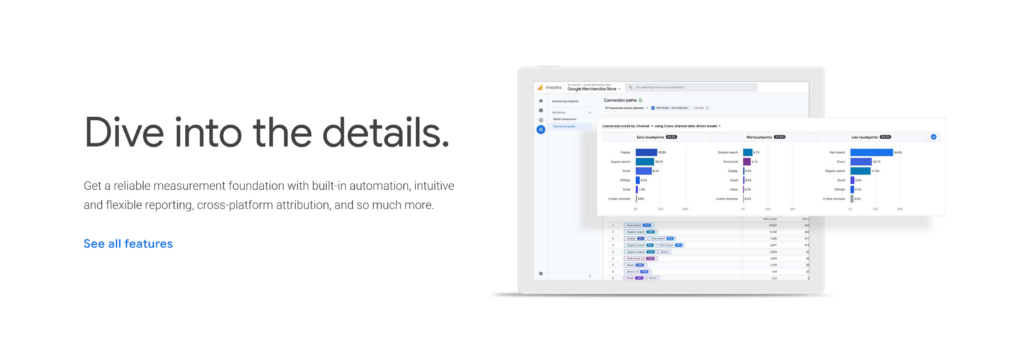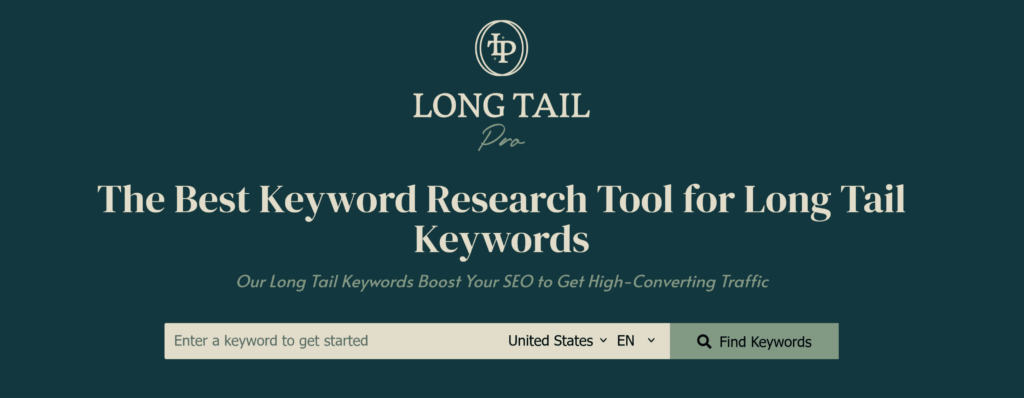In the ever-evolving world of search engine optimization (SEO), keywords play a crucial role in driving organic traffic to websites. Understanding how to effectively use keywords can significantly impact your website’s visibility and overall success in search engine rankings. This guide will explore the importance of keywords in SEO and provide best practices for optimizing your content.
Understanding Keywords in SEO
Keywords are the words or phrases that users type into search engines when looking for information, products, or services. In SEO, keywords are essential because search engines use them to determine the relevance and rank of web pages. By incorporating relevant keywords into your content, you can increase your chances of appearing in search engine results pages (SERPs) and attracting the right audience to your website.
Importance of Keyword Research
Keyword research is the foundation of effective SEO. It involves identifying the keywords and phrases that your target audience is using to search for information related to your business. By conducting thorough keyword research, you can gain insights into user behavior, discover new content ideas, and uncover untapped opportunities.
Types of Keywords
There are different types of keywords that you should consider during your research:
- Broad Keywords: These are general terms that have a higher search volume but are also highly competitive. Examples include “digital marketing” or “web design.”
- Long-Tail Keywords: Long-tail keywords are more specific and usually consist of three or more words. They have a lower search volume but tend to have higher conversion rates. For instance, “affordable web design agency in New York” is a long-tail keyword.
- LSI Keywords: Latent Semantic Indexing (LSI) keywords are words or phrases related to your target keywords. They help search engines understand the context and relevancy of your content. For example, if your main keyword is “email marketing,” LSI keywords could include “email campaigns” or “email automation.”
Keyword Intent
Understanding keyword intent is crucial for optimizing your content to match user expectations. Keyword intent refers to the underlying motive or goal behind a specific search query. It can be categorized into three main types:
- Informational Intent: Users are seeking information or answers to their queries. Examples include “how to start a blog” or “best social media marketing strategies.”
- Navigational Intent: Users are looking for a specific website or brand. For instance, searching for “Facebook” or “Nike shoes” demonstrates navigational intent.
- Transactional Intent: Users are ready to make a purchase or take a specific action. Keywords such as “buy iPhone online” or “best web hosting deals” reflect transactional intent.
Understanding keyword intent helps you tailor your content to meet the needs of your audience and provide them with the most relevant information or solutions.
Keyword Optimization Best Practices
Once you have conducted thorough keyword research, it’s time to optimize your content to maximize its visibility in search engine results. Here are some best practices for keyword optimization:
On-Page Optimization
On-page optimization involves optimizing the elements on your web page to make them more search engine friendly. Here are key areas to focus on:
Title and Meta Tags
The title tag is one of the most critical elements for keyword optimization. Include your target keyword in the title tag and keep it concise and descriptive. Meta tags, such as the meta description, provide a brief summary of your page’s content and should also include relevant keywords.
URL Structure
Ensure that your URLs are concise, descriptive, and include relevant keywords. Use hyphens to separate words and make them easily readable for both search engines and users.
Heading Tags (H1, H2, etc.)
Use heading tags (H1, H2, H3, etc.) to structure your content and highlight important sections. Incorporate your target keywords naturally within these headings to signal their relevance to search engines.
Keyword Density and Placement
While keyword density is no longer a strict ranking factor, it’s important to use your target keywords naturally throughout your content. Focus on incorporating them in the opening paragraph, subheadings, and throughout the body text. However, avoid overusing keywords, as it can negatively impact the readability and user experience.
Image Alt Tags
Optimize your images by adding descriptive alt tags that include relevant keywords. Alt tags not only improve accessibility for visually impaired users but also provide additional context for search engines.
Long-Tail Keywords and Their Significance
Long-tail keywords are highly specific and often have lower search volumes. However, they tend to attract more qualified traffic and have higher conversion rates. By incorporating long-tail keywords into your content, you can target niche audiences and capture valuable leads.
Monitoring Keyword Performance
Monitoring keyword performance is essential to track the effectiveness of your SEO efforts. Here are two key methods for monitoring keyword performance:
Google Analytics

Google Analytics provides valuable insights into your website’s traffic, including the keywords that are driving the most visits. By analyzing this data, you can identify top-performing keywords and optimize your content further.
SEO Tools
Various SEO tools, such as SEMrush, Moz, or Ahrefs, offer keyword tracking features. These tools provide detailed analytics, keyword rankings, and competitor insights to help you refine your keyword strategy and improve your search engine visibility.
Evolving Keyword Strategies
As search engines continue to evolve, it’s crucial to stay up to date with emerging trends and adapt your keyword strategies accordingly. Here are a few key areas to consider:
Semantic SEO
Semantic SEO focuses on the context and meaning behind search queries. Instead of solely targeting specific keywords, it aims to understand user intent and deliver highly relevant content. Incorporating semantic keywords and LSI keywords helps search engines understand the relevance of your content.
User-Intent Optimization
Optimizing your content for user intent involves creating valuable and engaging content that satisfies the user’s search intent. By focusing on providing the best user experience, search engines are more likely to recognize your content as valuable and rank it higher.
Voice Search and Conversational Keywords
With the rise of voice search, optimizing your content for conversational keywords is becoming increasingly important. Users often ask full questions or use natural language when performing voice searches. Incorporate long-tail conversational keywords that mimic how users speak to capture voice search traffic.
SEO Keyword Research Tools
Google Keyword Planner
Google Keyword Planner is a free tool that provides keyword ideas, search volume data, and competition level. It’s particularly useful for finding keywords related to your business and analyzing their performance.
SEMrush

SEMrush is a comprehensive SEO tool that offers a wide range of features, including keyword research. It provides keyword suggestions, search volume data, competition analysis, and more. SEMrush also offers advanced features like keyword difficulty analysis and competitor research.
Ahrefs

Ahrefs is another popular SEO tool that offers a robust keyword research feature. It provides keyword suggestions, search volume data, keyword difficulty analysis, and backlink analysis. Ahrefs is known for its extensive database, accurate data, and in-depth analysis.
Moz Keyword Explorer

Moz Keyword Explorer is a powerful keyword research tool that provides keyword suggestions, search volume data, and difficulty scores. It also offers additional features like organic click-through rate (CTR) data and SERP analysis, helping you identify keyword opportunities.
Ubersuggest
Ubersuggest is a user-friendly keyword research tool developed by Neil Patel. It provides keyword suggestions, search volume data, and keyword difficulty scores. Ubersuggest also offers additional features like content ideas, backlink data, and competitor analysis.
KeywordTool.io
KeywordTool.io is a popular keyword research tool that generates keyword suggestions from various sources, including Google Autocomplete. It provides a wide range of long-tail keyword ideas and supports different search engines and platforms.
Long Tail Pro

Long Tail Pro is a keyword research tool specifically designed for finding long-tail keywords. It offers features like keyword suggestions, search volume data, and keyword competitiveness analysis, helping you identify low-competition keywords with high search volumes.
SpyFu
SpyFu is an SEO tool that allows you to spy on your competitors’ keywords and PPC campaigns. It provides valuable insights into your competitors’ keyword strategies, helping you discover new keyword opportunities and improve your own campaigns.
SERPstat

SERPstat is an all-in-one SEO tool that includes a comprehensive keyword research feature. It provides keyword suggestions, search volume data, keyword difficulty analysis, and competitor research. SERPstat also offers features like rank tracking and backlink analysis.
Conclusion
Keywords play a pivotal role in SEO and are essential for improving your website’s visibility and attracting the right audience. By conducting thorough keyword research, optimizing your content, and monitoring keyword performance, you can enhance your website’s search engine rankings and drive organic traffic. As search engine algorithms continue to evolve, staying informed about emerging trends and adjusting your keyword strategies will ensure that your website remains competitive in the digital landscape.
Remember, keyword optimization is just one aspect of SEO. It’s equally important to focus on providing high-quality, relevant, and valuable content that satisfies the needs of your target audience. By combining effective keyword optimization with compelling content, you can maximize your website’s potential and achieve long-term success in search engine rankings.









